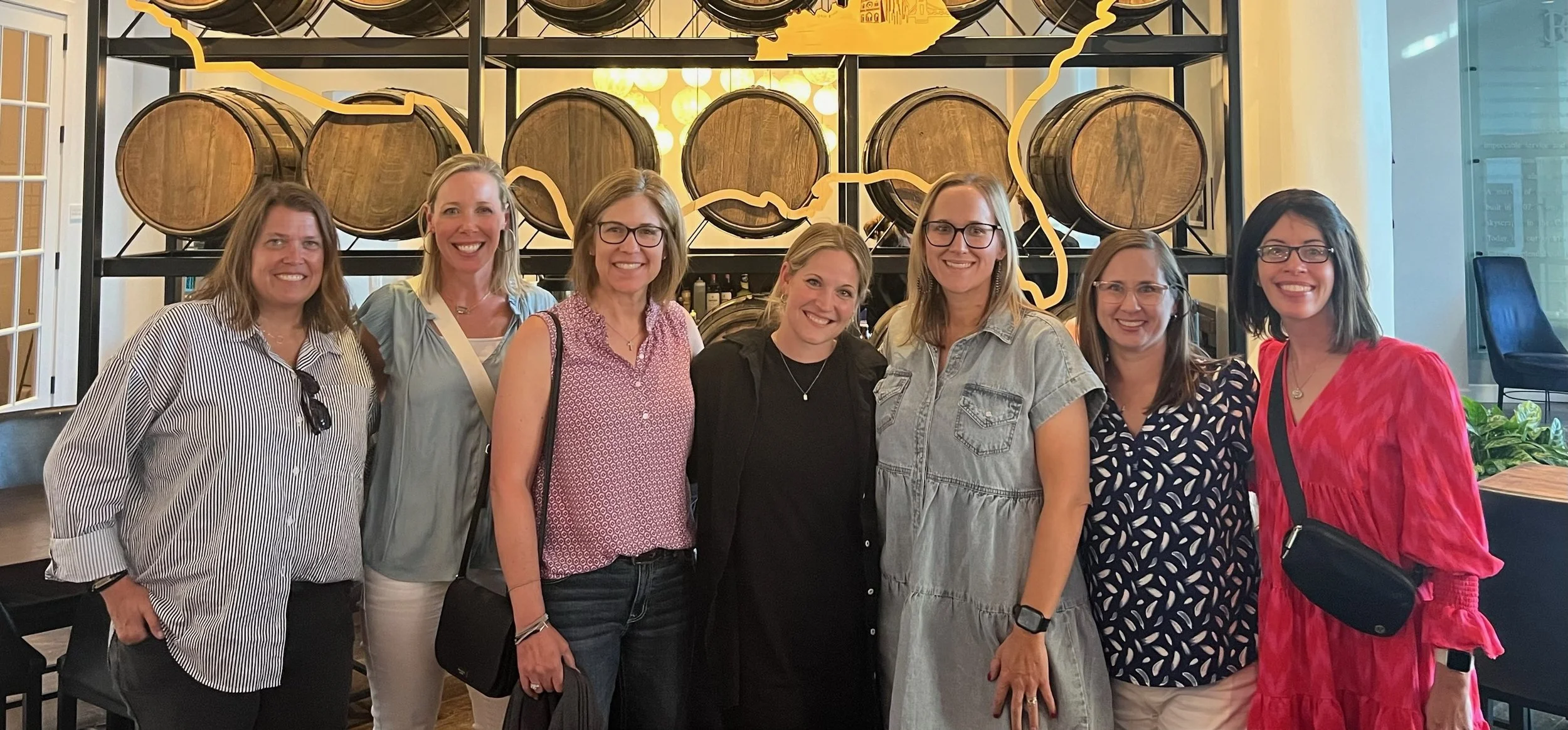Nurturing Legacy: Lessons in Resilience from Generations of Family Farming Women
My peer group of 7 family farm leading women met a couple of weeks ago for our summer meeting. The summers we spend on one of the farms, so we have the opportunity to engage with others that manage or work on that particular farm. This summer we traveled to Washington Court House, Ohio to visit Bryant Ag Enterprises. Bryant Ag is a multi-generational farm that has successfully made it to the third generation! What I believe is remarkable is their third-generation leadership are first cousins. They have successfully grown the operation to what many might consider a corporate level all while keeping a family farm culture. They are examples for all of us working to maintain a family operation for the next generation.
For me personally, I feel the weight of maintaining our operation but more importantly keeping the family-owned land in the family. This sentiment was extremely important to my grandparents and to my father and his brothers and sisters. My grandmother instilled in me the strong resolve that we keep or buy land and we do not sell it. I know this has been stated to many generations of farm family members across our country. There is a deep love, appreciation, and blessing of the land when it is the sole provider of your livelihood. I am not sure I am able to adequately describe the feeling, but I promise you it is well known by my peers.
Aside from our own family land, I also feel the pressure to make sure we are performing on the land we rent from other local families. I believe it is rare for a family to continue to own land when they no longer have a successor interested in doing the actual production. Therefore, when a family has chosen to maintain the land, it is an honor to be asked to produce a crop for them and to manage their land just like it is our own. I am keenly aware that these families depend on our performance. I am very disappointed when the season turns out not as we had planned, and I must relay that to the land-owning family. Communication is important with our land partners.
Planning for different scenarios of ownership of land and farming operations is a tricky subject to address. Within our peer group we are constantly brainstorming ideas for all situations we may encounter. It seems you can never have a perfect plan or be prepared for the unknown situations. Having a confidential group in which these discussions are “rough drafted” can be helpful in preparing for and learning about some challenges before you might encounter them yourself. One thing we have all learned is we are not alone in trying to work through how a family business is to survive for another generation. You simply cannot foresee all the pitfalls, but we are doing the best we can and have each other to lean on.
The group was fortunate enough to meet and hear from Bethany Gremel, Director of Culture and Brand Experience from Beck’s Seed Company. What a cool title, don’t you think? Being a southern corn farmer, I had heard of Beck’s but was not too familiar with the company. I was surprised to learn that they are still very much family owned and operated alongside other non-family managers such as Bethany. It was super interesting to hear the story of how the company has grown and the strategic polices that have been implemented and improved upon to make sure that Mr. Beck’s vision for the company and the family are upheld and passed on. Although a much, much larger business I believe the dynamics of any family-owned business are comparable.
I am curious how much or how little succession planning have you done in your own operation? It can be expensive and force difficult conversations therefore many families do not address it head on. If you are the first generation with others coming in after you have you expressed your vision for the future? And if so, have you asked if your vision aligns with your children or nieces and nephews’ idea of the future? One thing I have learned is that vision may change and if simply holding the land is the number one goal, then how that happens should not be criticized or guided by another generation. The weight of maintaining land ownership is onerous for those stepping into the big shoes of the generation that built it. If you are a succeeding generation, do you know what will happen as others choose to exit, retire or pass away?
The ever-changing struggles of operating a family farm and maintaining the land will always be there. I am thankful for these extremely resilient women that have fallen on the same path with me. Having a group that will help me in the bad times and cheer me on when it’s good is such a blessing.
